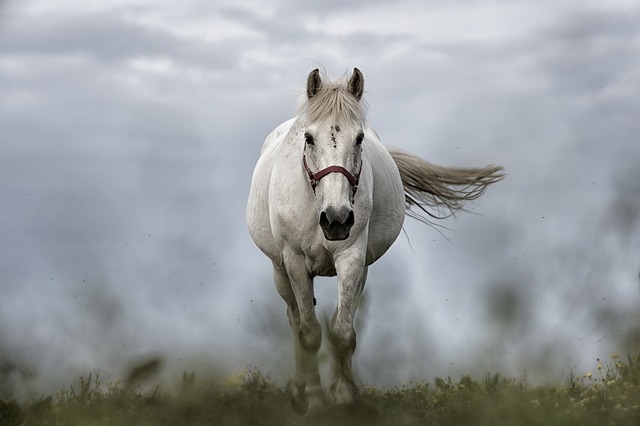When the Emperor Was Divine by Julie Otsuka, 2002, follows the anonymous story of a family torn apart and relocated from their home in Berkley, California, to Japanese internment camps in Nevada and Utah during World War II.
One of the most striking parts of the story, for me, was the fact that names were rarely used — presumably white character’s names were given, like Joe the shop owner or Elizabeth who was the boy’s friend, but the actual family that the story followed was never given a name. There is an obvious distinction between this Japanese family and their anonymity and the bold usage of names for the other white characters. The non-use of names seemed intended to show the grouping of all Japanese Americans together, something that the rest of the US citizens did when the Japanese Americans were alienated by the US government. The racial stereotypes then thrust upon these families in the book showed that they were no less American than anyone else — they just stemmed from the “wrong” race at the wrong time.
The author made a point to use the word “white” to describe different things throughout the book from the white desert, to the white snow then turned muddy (potentially a metaphor for how white people felt when commingling with Japanese Americans), to the dream of a cowboy riding off on a white stallion. The color white is often a color used to describe cleanliness, purity, and even holiness and the author seemed to make a great show of that throughout her novel. She wanted the readers to understand that the color white was only supposed to describe good things or even indescribable things that were not necessarily good like the desert.
Not only is the color white often referenced as a descriptor, but specifically it is used with to describe a stallion or horse. The boy has a fascination with horses as he and his family travel to their second interment camp after sleeping in old horse stalls at an abandoned racetrack. A white horse can many a couple of things, from a symbol of wisdom and freedom, or in Christianity it can often be a symbol of death. It seems that both ideas work with the story; as the family loses their freedom and power and individuality, the white horse seems to become a beacon of death — it no longer is a beautiful sight to behold, but one to be afraid of. But the white horse can also be seen as the white Americans who are looming overhead the Japanese family. Perhaps the horse loses its brilliance with white fur and becomes a beacon of hope for the family again as a brown or black horse, like the stallions the boy and girl see running in the plains from their train window.
Otsuka created a rich and powerful novel that seemed to incapsulate how it would have felt to be in a Japanese internment camp, separated from your loved ones and home and basically everything you knew. I felt as though I was also living through these tough times alongside the family; struggling with getting older and becoming a young lady as the girl did; not connecting with anyone but your mother and sister and constantly waiting for your father to rescue you as the boy did; and the endless waiting and overhanging fear of what might come next as the mother did.
Mental health plays a small part in the novel as well, as it follows the mother’s descent into depression. She goes from being a normal, semi-vain woman who worries about her lipstick and wrinkles around her eyes to not wanting to get up from bed during the day while interned. She loses her appetite, gets lost in thought, and is lost as to what time or day it is. When the family is released from the camp, they are told that the father will be coming home soon as well. The boy and girl both remember their father as a happy man with a full head of hair, known to sing off-key, and always there for his children. But years have passed and when they pick him up from the train station, he is not the man they remember: he is bald, hunched over with a cane, and clearly suffers from his own nightmares. Otsuka made sure to show that the father had some form of PTSD, something that seems to often be categorized for soldiers who fought in war, but he was not in war — he was in a war camp, forced to admit to things he did not do so the tortures would stop. Not only did these tortures physically age and ail him, but they mentally ruined him.
The novel was powerful and gave me a look into something I know very little about. Like most modern students, I’ve only learned cherry-picked snippets of what WWII was like for Japanese Americans and I feel that this book has allowed for me to gain a new understanding and perspective into what kind of horrors the war held for more than just the white soldiers involved.
